
Writing is a vital skill to develop on a regular basis. With 3 monthly print-and-go writing prompt worksheets that are ideal for novice writers, this resource makes it simple. This collection of seasonal, holiday, and anytime sentence starters for beginners and kindergarteners includes a combination of seasonal, holiday, and anytime sentence starters. These writing assignments are ideal for kindergarten and beginning writers. You may easily put them in a writing folder or make a diary out of them. Find other resources for writing prompts here on our website by clicking on the category of writing or by scrolling down to the similar posts section.
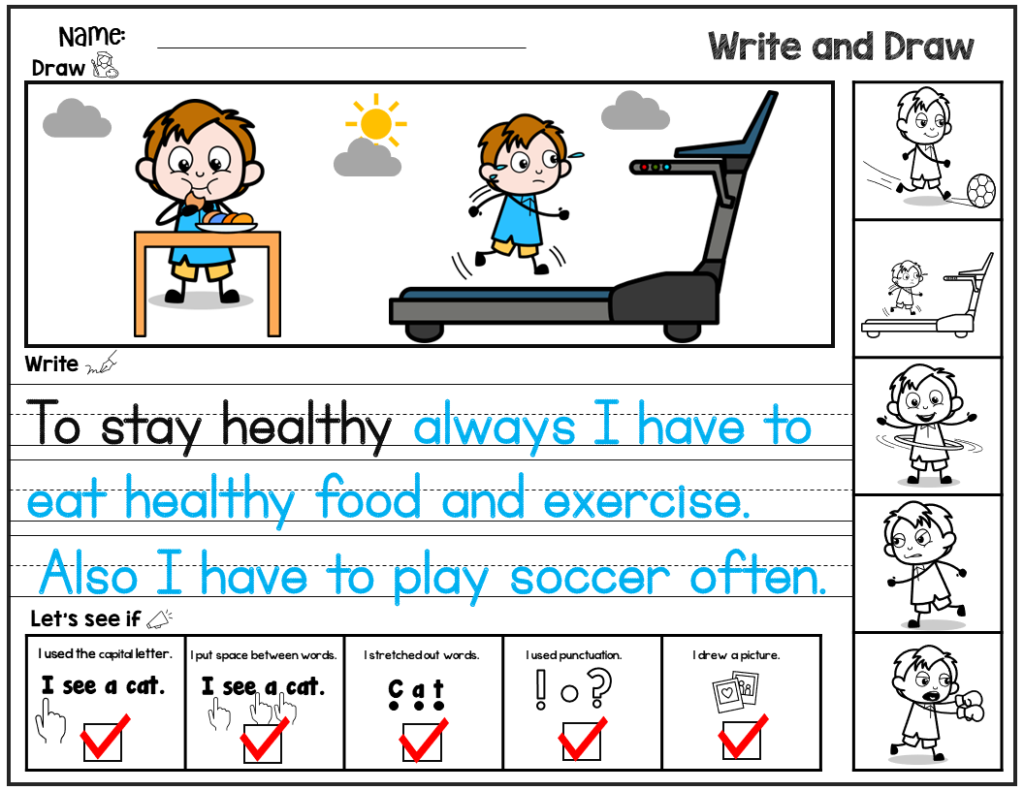
Each page contains the following information:
For young beginning writers, large writing lines have been created particularly for them.
Students can use this space to demonstrate their writing.
A word bank with images based on a subject.
Checklist for writing conventions
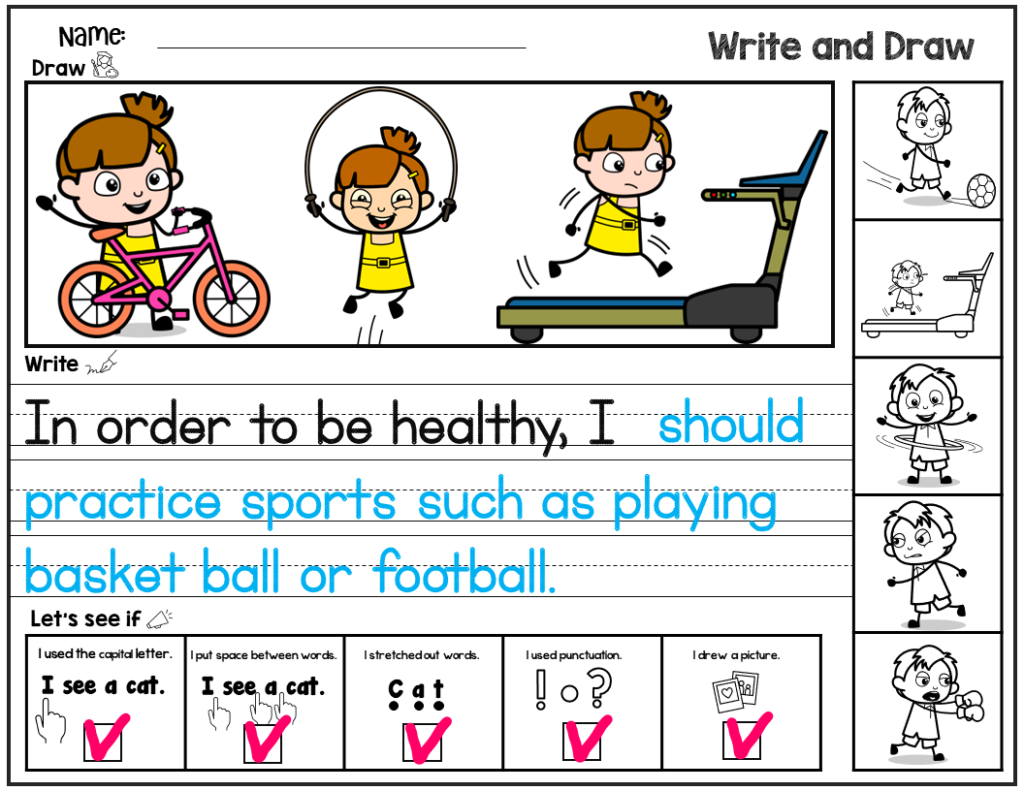
The checklists for writing norms urge students to:
.Make use of a capital letter.
.Separate their words with spaces.
.To spell the words, make them longer.
.Make use of punctuation.
.Make a drawing
This document contains the following information:
There are 3 pages in all, each containing a strong sentence starter (great for beginning writers)
3 pages with a traceable sentence starting
3 of the SAME pages were found to be missing a sentence beginning (great for independent writers)
For pupils who want to write more, a blank sheet with lines is given.

Writing Prompts for Kids and Lots of Inspiration for You, PLUS Bonus Support Resources— There’s no denying that children like going on adventures. Exploring, creating, and questioning are all important components of childhood, and frequent creative writing practice may help your pupils develop these interests.
How Can You Assist and Encourage Your Children’s Creative Writing?
We all know that training children to write has several advantages, but are you wondering how to encourage your child to engage in more creative writing? Below are some fantastic creative writing ideas that will help you address this topic.

Allowing children to think creatively while also allowing them to develop their writing abilities can result in a variety of excellent consequences. Improved writing abilities, for example, can help your child achieve greater levels of success throughout their lives. There are a plethora of other advantages to writing, but for now, I’d want to focus on writing support ideas for you to utilize with your children. So, without further ado, let’s get started…
5 Suggestions for Helping You Write Creatively
Children’s Creative Writing Idea #1: Look for creative writing software, apps, and programs.
Children nowadays are not the same as children in the past. Computers and technology are ingrained in their daily life, and you should take advantage of this. Indeed, you’ll want to assist your child in learning to use technology in a balanced manner, with some usage for sheer enjoyment and amusement and others for learning and growth.
Allowing your youngster to practice writing on a laptop or iPad will help him improve his abilities. (Along with helping him to hone his writing and inventive talents, you’re also allowing him to enhance his typing and keyboarding skills.) There are several fantastic writing applications for kids available! If you don’t have an iPad or other tablet, your public library or school library may contain materials for kids writing technology.
However, you should restrict a child’s exposure to technology since too much computer time can cause eye strain and impaired vision. Remember to take your toddler outside to play every now and then!
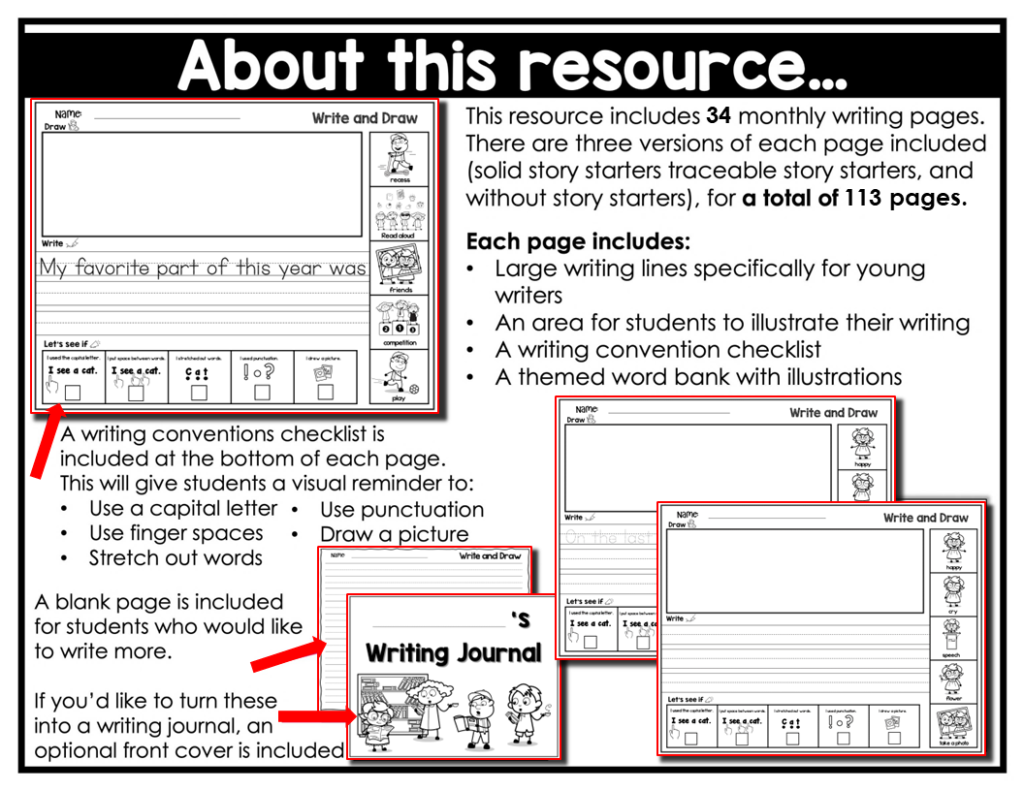
Idea #2: Make writing games for your youngster to play.
Children like playing games, and writing games may be a fun approach to get them more involved in and enjoy creative writing.
Share writing ideas or a list of random words with your child as an example of a writing game for kids, and then tell him to integrate them into his creative writing. He will have won the game if he can effectively connect these thoughts and create a tale. Give him praise or a token of your appreciation for a job well done.

Idea #3: Encourage your youngster to write about an event she’s had.
Personal experiences may be a terrific method to get a child to start writing creatively. This can also assist children in safely expressing their own thoughts and feelings, which is especially beneficial when a youngster has difficulties doing so.
It’s also said to be therapeutic to write artistically and fictionally on personal events. Writing about personal experiences, on the other hand, may be a terrific technique to keep a memory alive in circumstances when the memories are more pleasant.
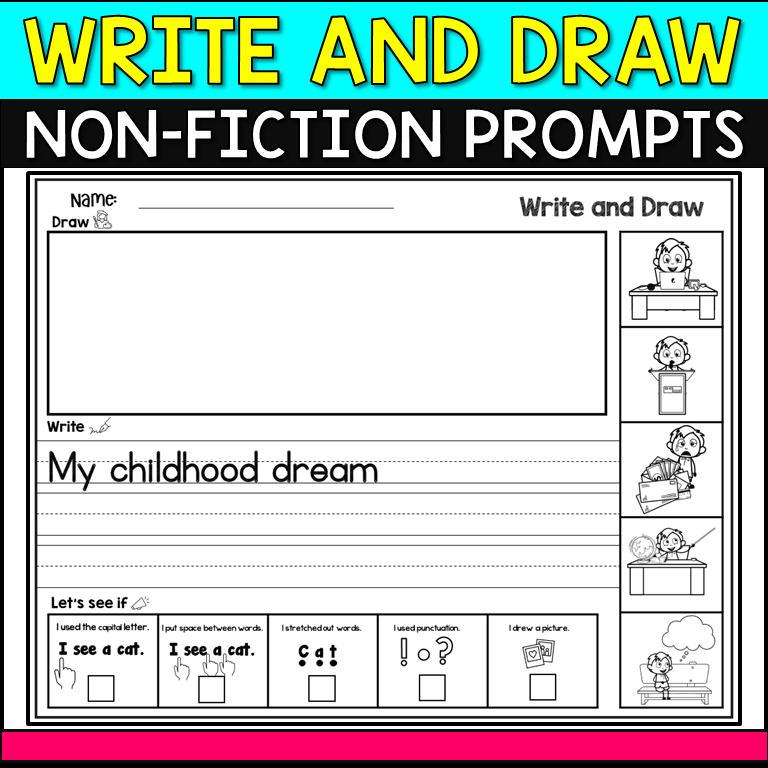
Idea #4: Have your youngster share his or her work on an internet blog.
You may construct a kid’s blog page for more tech-savvy and extroverted children to submit their thoughts.
By putting their work out there for the world to view and remark on, some youngsters will build confidence in their writing. The act of making one’s writing public encourages a youngster to feel proud of their own work. Oh, and don’t forget to tell your family, teachers, and neighbors about the blog and urge them to comment and offer comments on your child’s work.
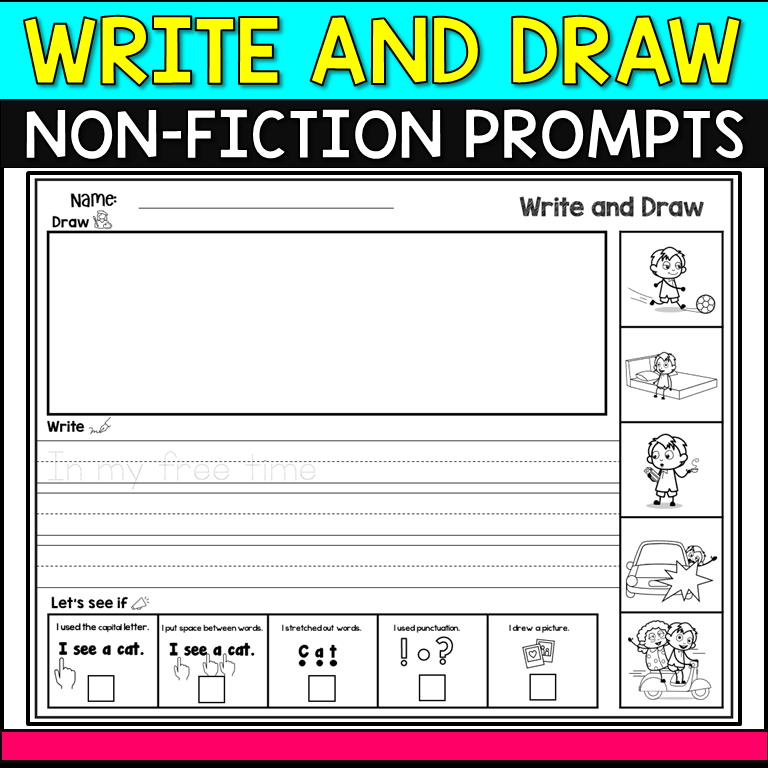
Idea #5 – Always remember to congratulate them on a job well done.
The importance of positive reinforcement in a child’s writing confidence cannot be overstated. They are considerably more inclined to continue doing something good if they feel valued for what they are doing. If you want your child to recognize the time and effort they put into writing anything, make an effort to remember to congratulate them. A system of rewards might also be advantageous.
When your child makes a mistake, offer constructive criticism to keep him or her from becoming disheartened. Avoid harsh criticism since it might stifle the creative process.
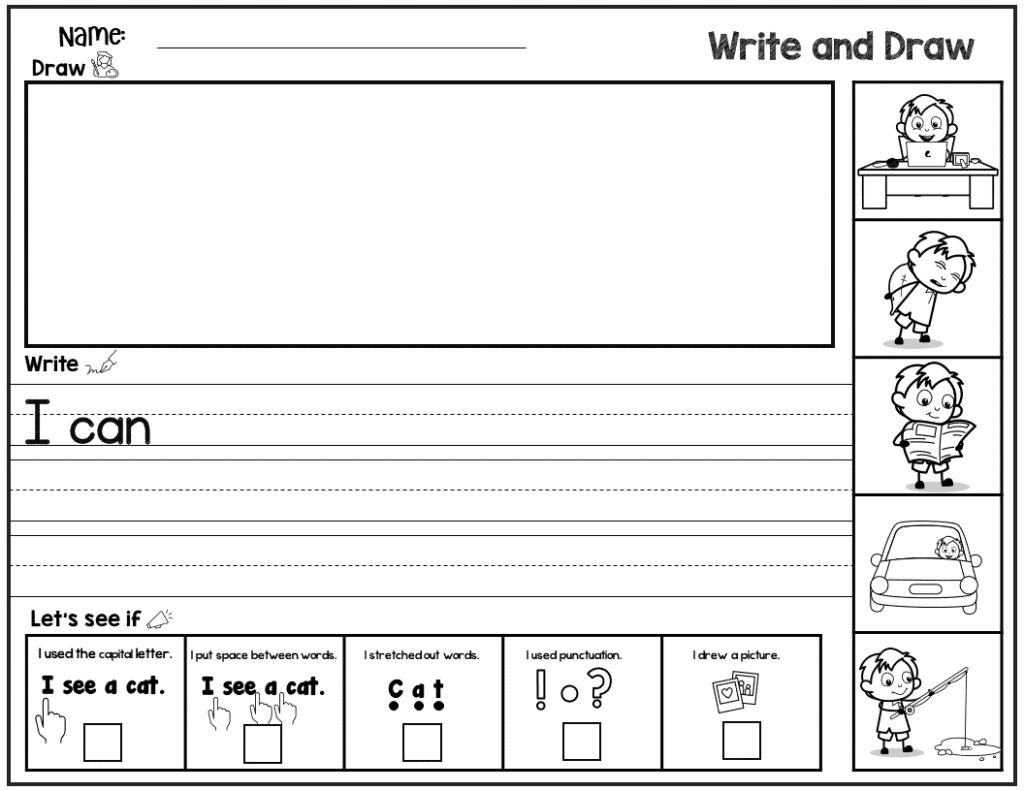
You may approach a child’s creative writing in a variety of ways to make it a fun experience for both you and your child.
These 5 creative writing ideas for kids are likely to inspire you in some manner, as well as assist your child to improve his writing skills. Make learning to write — whether artistically or otherwise — joyful, engaging, and significant for your child. You will pique their interest and hold their attention for a longer period of time if you do so.






